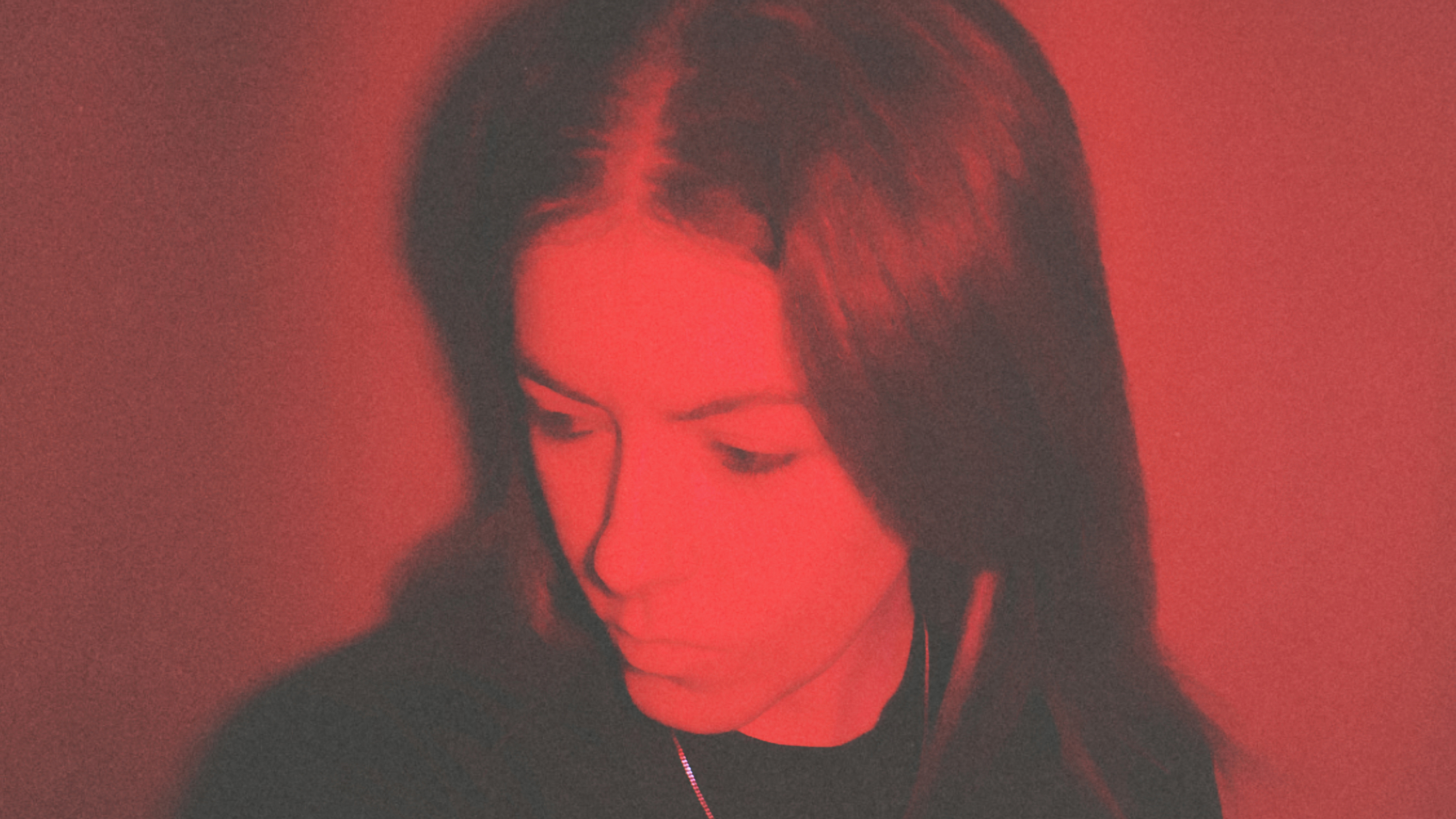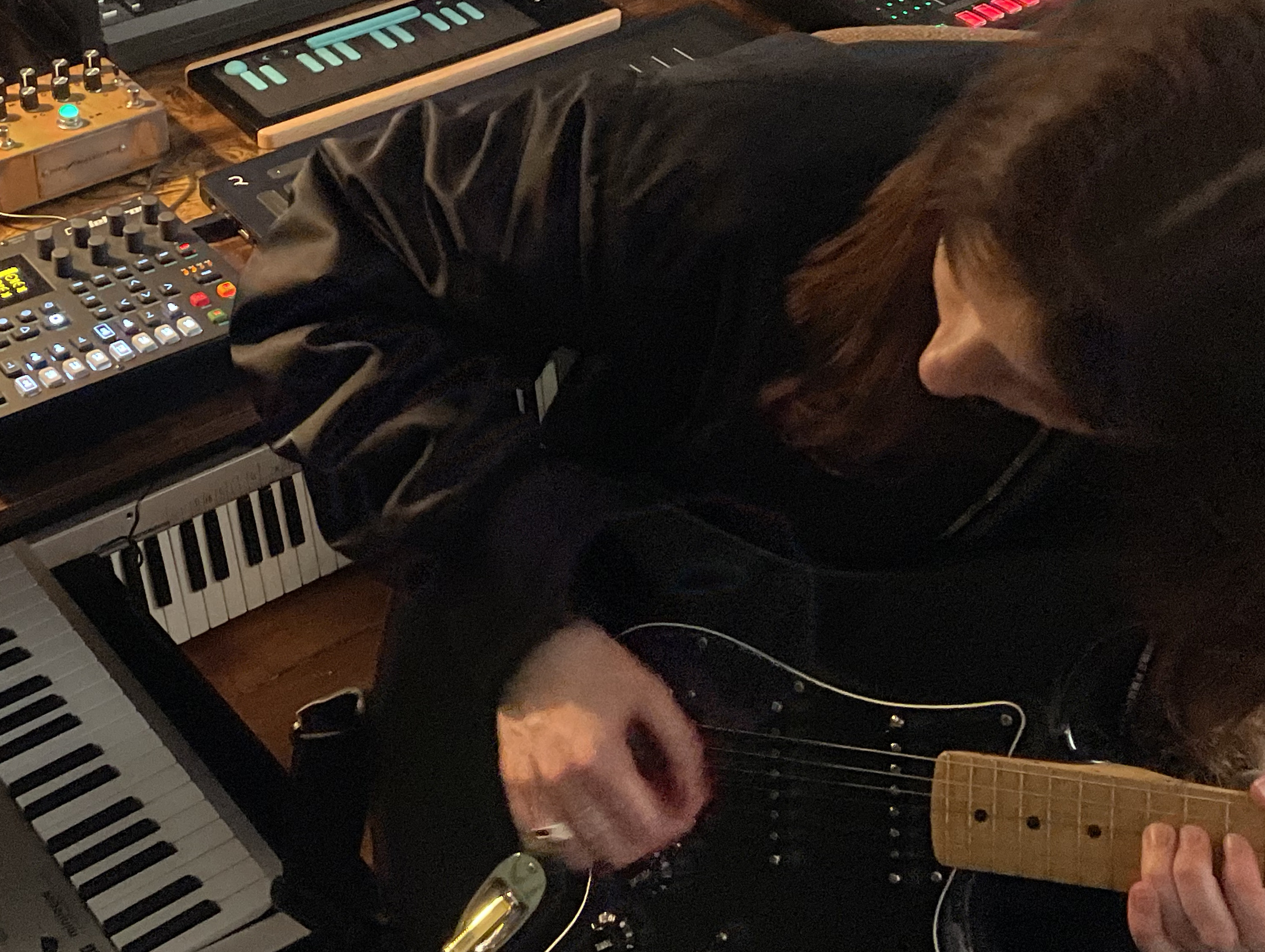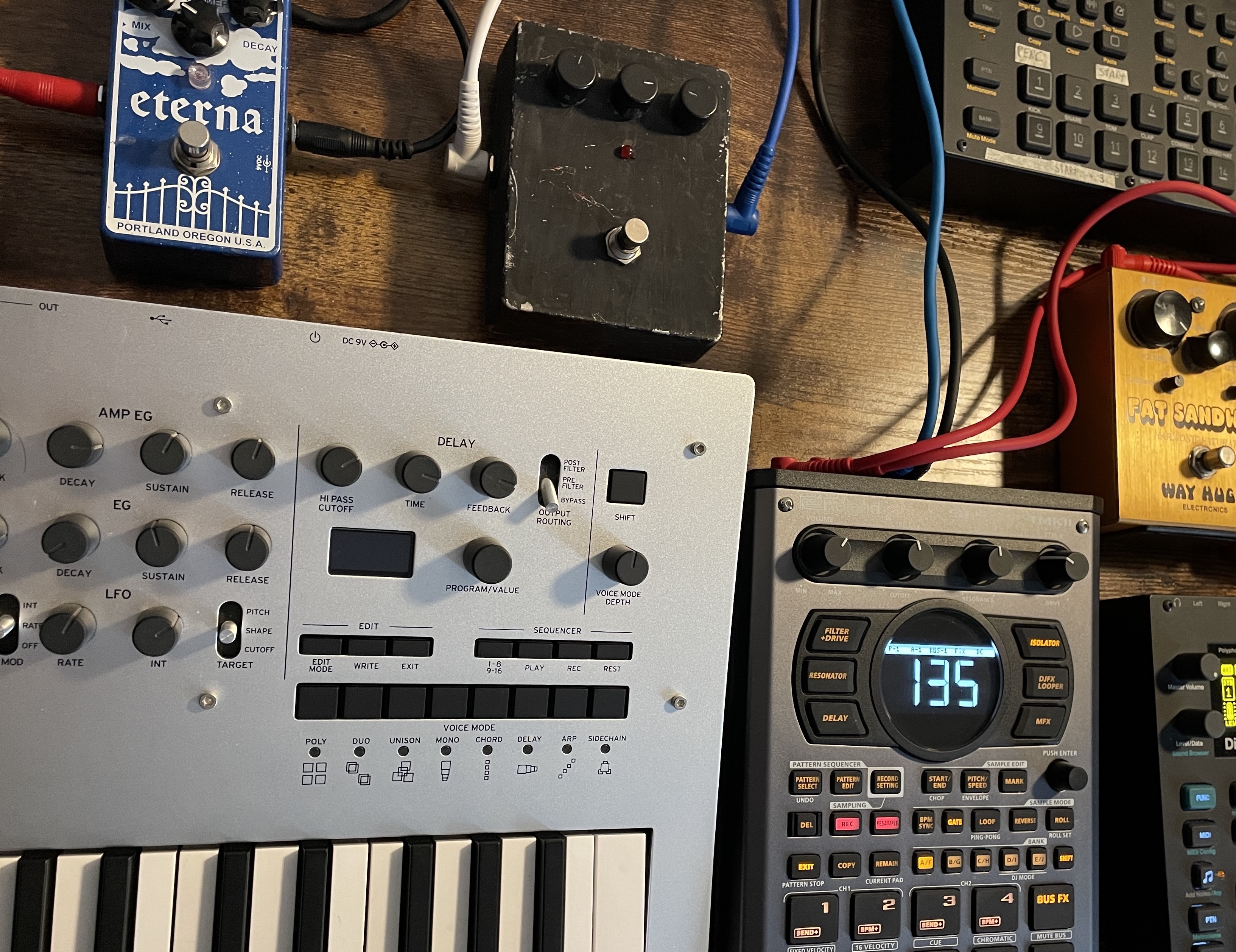
Arriving on the UK music scene as part of the band 2:54 alongside her sister, Colette, Hannah Thurlow’s early work explored shadowy, guitar-focused vibes that recalled the downcast drama of fellow Bristolians Portishead and Massive Attack.
Since then, Thurlow has taken a sidestep into electronica, releasing two EPs that showcase a variety of manipulated samples, propulsive beats and digital textures.
Thurlow’s latest offering is the Grip EP, a four-track release that pairs luminous synth lines with precise drum programming and forward-thinking sound design. “Grip came at a time when I had been going to a lot of live hardware shows and club nights,” Thurlow tells us. “The sun was shining. This translated into the music and I discovered the joy in the randomness of modular and drum machines so interesting.”
We caught up with Hannah Thurlow to find out more about the making of her latest EP and she was kind enough to leave us with three production tips.
When did you start making music and how did you first get started?
“I started creating music in my early teens. I grew up listening to heavy guitars, electronic music and the local music scene: drum ‘n’ bass and heavy metal. My first instrument was a guitar which soon led to an obsession with guitar pedals.
“Through playing with the pedals and manipulating sounds I started to look into other ways to create noise. Then I picked up my first keyboard, which led to exploring the world of synths and eventually modular components. I still run much of my hardware through a pedal effects board, especially during live performances.”
Tell us about your studio/set-up?
“My studio is a small solo space. I mostly use hardware but have a good collection of software. I love to have everything around me plugged in ready to go. Ideas often come flying out so it’s good to have everything easily accessible to capture them. All my ideas will mostly start on hardware before I take them into my computer.
What DAW (or DAWs) do you use, and why did you choose it?
“I use Logic and Ableton. Pro Tools sometimes, but for more band-oriented projects in studios. I’ve been using Logic forever but in the past five years have been making the switch over to Ableton. Both have great capabilities. I love the ease of Logic, it’s become second nature to me. Ableton can be amazing for manipulating and deconstructing sounds into completely new ideas very quickly.”

What one piece of gear in your studio could you not do without, and why?
“Hard to choose but if I had to pick one at the moment it would be my ROLI Seaboard. It’s very intuitive and the way you can create very human-sounding instruments appeals to me a lot. Mixing live instrumentation with the ROLI VST is a lot of fun.”
What's the latest addition to your studio?
“Some new plugins from Noise Engineering including a great new stereo distortion. Also the Roland SP-404, it’s really great for triggering samples and making quick ideas on the go. I like to keep it in my bag and use it whenever I can. It can run on batteries which is great.”
What dream bit of gear would you love to have in your studio?
“A full Eurorack set-up would be the dream. Also more recently the Erica Synths Perkons HD01. It’s been on the list since it came out. Got to play on one and fell in love even more.

We’re told that you became fascinated by the world of modular and vintage synths early on in your teens. Can you tell us more about that?
“I discovered the Korg MS-20 and Roland Juno at a friend’s house in my teens and it sparked a real fascination. They also had a few modules and some Moog synths. I loved being able to control every aspect of a sound through oscillators, LFOs and playing with the pitch.”
What does your modular set-up look like at the moment?
“For now I just have a selection of standalone units from Moog (the DFAM and Mother-32) and Erica Synths. I have a small rack with maybe three modules which has grown and reduced over the years. A switch to full modular rack set-up would be a dream for the future.”

When approaching a new track or project, where do you start?
“Usually a track will start with a beat or melodic loop I’ve created. I love to record found sounds and I have a bank of sounds I’ve recorded on my travels and everyday life. I love to record drum sounds into my Elektron gear and create new beats.”
Tell us about how you approached the production on your new EP. Did you experiment with any new techniques or methods?
“The tracks all came from experimenting with sounds I’d recorded into my samplers and drum machines. I love slightly more off-kilter rhythms. Also for this record I liked to use room mics and re-amp some of the drums to create a reverb effect by setting up mics in the space and capturing delays and feedback.”
What are you currently working on?
“I’m currently working on a score for an Independent film project and working on new solo releases for next year. It’s getting heavier and the BPM is getting faster. I’m also getting the live show ready for some shows coming up in 2024. It’s been a lot of fun to get out and play live during the last year.”
Hannah Thurlow’s latest EP Grip is out now.
Hannah's production tips
1. Reamping and room mics
“Experimenting with re-amping is a great idea as it can create some very unique sounds. I love to play stems back through guitar amps and also capture the room reverb. Setting up room mics whilst your playing back sounds can be a great effect, especially on drums when manipulated back through live effects.”
2. Mono vs stereo
“I always like to keep a mono core to each track and keep a few separate low-end tracks with some reverb/delays to create a wide scope.”
3. Archive your old projects
“Personally, I never like to delete ideas. You never know when they will come back around. I recently went back into some old Logic files from maybe ten years ago and there were some parts which I have turned into new ideas. It’s always interesting to hear where you’ve come from and it’s good to step away and get a new perspective on an old piece of music.”







